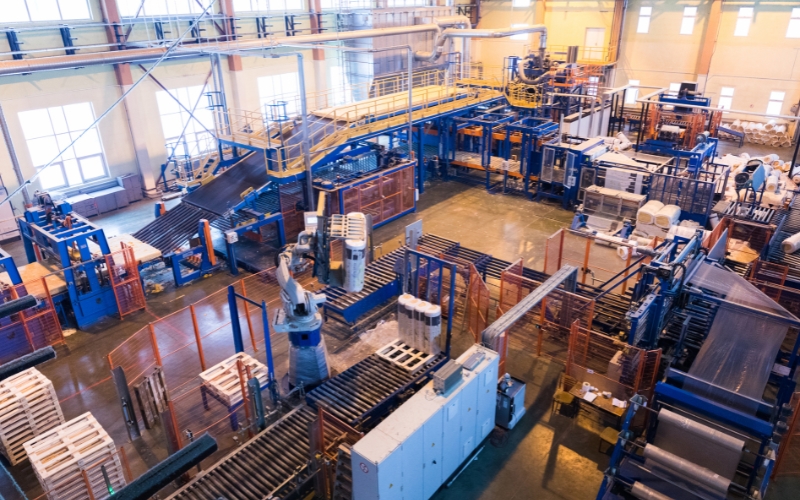- The Rising Importance of Sustainability in CPG and Manufacturing
- The Role of Leadership in Driving Sustainability Initiatives
- Key Competencies for Sustainable Leadership
- The Growing Recruitment Trend: Sustainability-Focused Leaders
- Ready to Lead the Future? Find Sustainable Visionaries for Your Leadership Team with JRG Partners!
As sustainability becomes a core value for businesses worldwide, the need for leaders who understand and prioritize environmental and social responsibility is rapidly growing. This shift is particularly evident in the consumer packaged goods (CPG) and manufacturing industries, where sustainability initiatives are directly linked to operational efficiency, brand reputation, and long-term success. In this article, we will explore how sustainability and leadership are converging to shape a new recruitment trend in CPG and manufacturing, focusing on the skills and attributes needed to lead in a more sustainable future.
The Rising Importance of Sustainability in CPG and Manufacturing

In recent years, sustainability has evolved from a buzzword to a fundamental business strategy. For CPG and manufacturing companies, sustainability is no longer optional—it’s a critical aspect of how they operate, engage consumers, and compete in the marketplace. This shift is being driven by several factors, including changing consumer preferences, regulatory pressures, and the need to reduce environmental impact.
- Consumer Demand for Sustainability Modern consumers, particularly millennials and Gen Z, are increasingly conscious of the environmental and social impact of their purchasing decisions. They want to buy from companies that demonstrate a commitment to sustainability, whether it’s through eco-friendly packaging, ethical sourcing, or carbon-neutral operations. As a result, CPG and manufacturing companies are under pressure to meet these expectations, making sustainability a core component of their business models.
- Regulatory and Market Pressures Governments and international organizations are implementing stricter environmental regulations aimed at reducing carbon emissions, conserving resources, and minimizing waste. For CPG and manufacturing companies, compliance with these regulations is essential, but the most forward-thinking companies are going beyond compliance to proactively implement sustainability initiatives that provide a competitive advantage.
- Operational Efficiency and Cost Savings Sustainable practices can also improve operational efficiency and reduce costs. By optimizing energy use, minimizing waste, and sourcing materials more responsibly, companies can achieve significant cost savings. This dual benefit of improving sustainability and operational performance makes sustainable leadership a key recruitment trend.
The Role of Leadership in Driving Sustainability Initiatives

Sustainability in CPG and manufacturing is not just about operational changes; it requires a transformation in leadership. The leaders who are driving this change must possess a unique set of skills and qualities that enable them to balance profitability with environmental and social responsibility.
- Visionary Thinking Sustainability leaders in CPG and manufacturing must be visionary thinkers who can see the long-term impact of business decisions on both the environment and society. They need to be able to craft strategies that align sustainability goals with business objectives, ensuring that the company remains competitive while reducing its environmental footprint. This requires not only a deep understanding of sustainability issues but also the ability to anticipate future trends and challenges.
- Collaboration and Influence Implementing sustainability initiatives requires collaboration across multiple departments and with external stakeholders. Leaders must be skilled at building relationships and influencing others, from employees and suppliers to regulators and customers. This collaborative approach is essential for creating a culture of sustainability within the organization and ensuring that all stakeholders are aligned with the company’s sustainability goals.
- Innovation and Agility The fast-paced nature of sustainability challenges, such as climate change and resource depletion, requires leaders who are innovative and agile. They must be able to adapt quickly to new regulations, market demands, and technological advancements. Sustainability leaders in CPG and manufacturing are often at the forefront of driving innovation, whether it’s developing new eco-friendly products or implementing cutting-edge manufacturing processes that reduce waste and emissions.
- Commitment to Transparency and Accountability In the age of social media and instant communication, companies are held accountable for their actions more than ever before. Sustainability leaders must be committed to transparency, regularly reporting on the company’s progress towards its sustainability goals. This includes being open about challenges and setbacks as well as successes. By fostering a culture of accountability, leaders can build trust with consumers, investors, and other stakeholders.
Key Competencies for Sustainable Leadership

As companies in the CPG and manufacturing sectors place greater emphasis on sustainability, they are seeking leaders with specific competencies that align with these goals. The recruitment process for top leadership positions is increasingly focused on identifying candidates who possess the following skills:
- Sustainability Expertise Sustainable leadership requires a deep understanding of environmental and social issues. Leaders need to be knowledgeable about regulations, best practices, and emerging trends in sustainability. This expertise enables them to make informed decisions that drive the company’s sustainability agenda forward.
- Strategic Planning and Execution Sustainability initiatives require careful planning and execution. Leaders must be able to develop long-term strategies that balance business objectives with sustainability goals. This involves setting measurable targets, allocating resources effectively, and ensuring that sustainability is integrated into every aspect of the business.
- Change Management Transitioning to more sustainable practices often involves significant organizational change. Leaders need to be skilled in change management, guiding employees and stakeholders through the process of adopting new practices, technologies, and mindsets. Effective change management ensures that sustainability initiatives are embraced across the organization, rather than being met with resistance.
- Financial Acumen While sustainability is often associated with environmental and social responsibility, it also has financial implications. Sustainable leaders must have strong financial acumen to understand the costs and benefits of sustainability initiatives. They need to be able to assess the return on investment (ROI) of these initiatives and ensure that they contribute to the company’s long-term profitability.
The Growing Recruitment Trend: Sustainability-Focused Leaders

The demand for sustainability-focused leaders in CPG and manufacturing is on the rise. Companies are recognizing that sustainable leadership is not just about environmental responsibility—it’s a key driver of business success. As a result, recruitment processes are evolving to prioritize candidates who demonstrate a strong commitment to sustainability.
- Executive Search Firms Targeting Sustainable Leaders Executive search firms are playing a pivotal role in this trend by focusing on sustainability leadership as a core competency for CPG and manufacturing roles. These firms specialize in identifying candidates with the vision, expertise, and collaborative skills needed to drive sustainability initiatives at the executive level.
- Leadership Development Programs In response to the growing importance of sustainability, many companies are investing in leadership development programs that focus on sustainability. These programs are designed to equip future leaders with the knowledge and skills they need to lead sustainable businesses. By fostering sustainability leadership from within, companies can ensure a pipeline of talent that is prepared to tackle the challenges of the future.
- Diversity and Inclusion in Sustainable Leadership Sustainability and diversity go hand in hand. Companies are increasingly seeking leaders who not only prioritize sustainability but also champion diversity and inclusion. Diverse leadership teams bring a wide range of perspectives and ideas to the table, which is essential for developing innovative solutions to sustainability challenges.
Ready to Lead the Future? Find Sustainable Visionaries for Your Leadership Team with JRG Partners!
As the CPG and manufacturing industries continue to embrace sustainability, the need for visionary leaders who can drive change has never been greater. At JRG Partners, we specialize in recruiting leaders who possess the skills and passion to lead sustainable initiatives. Contact JRG Partners today to find the right leaders who can help your company thrive in a sustainable future.


